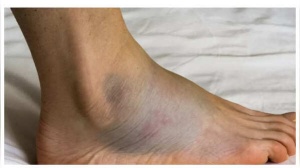Do you believe you lack the time for self-care? A mere 20 minutes daily could significantly improve your health. Jonathan Schott, a distinguished professor of neurology at UCL and chief medical officer at Alzheimer’s Research UK, has identified five simple strategies to boost your brain health, each requiring no more than 20 minutes per day. Let's explore these impactful activities.
Dr. Schott emphasizes the importance of stimulating your brain through activities you genuinely enjoy. This could encompass cooking, reading, playing music, or even gardening. However, he advises against engaging in activities solely out of obligation, as this can have a counterproductive effect. Prioritize pursuits that genuinely pique your interest.

Physical activity doesn't necessitate strenuous gym workouts. A brisk walk, yoga session, dancing, or cycling can suffice. Any activity that elevates your body's exertion level is beneficial. Exercise not only helps maintain a healthy weight but also promotes heart health, lowers blood pressure and cholesterol, elevates mood, and alleviates anxiety and depression.
Walking seamlessly integrates into your daily routine. Complementing other forms of exercise, walking effectively tones muscles and maintains heart health. Minor adjustments to your routine, such as taking the stairs, walking to the market, or pacing while on calls, can contribute to a healthier lifestyle.

Humans thrive on social interaction. Whether married or unmarried, cultivating a close circle of friends and family is crucial. Research indicates that social isolation can elevate the risk of dementia. Therefore, actively seek out new friendships and prioritize social engagement. Sharing laughter or providing support with loved ones offers immeasurable health benefits.
High blood pressure, often termed the "silent killer," typically presents no symptoms but can inflict severe damage on your heart and brain over time.
Dr. Schott underscores the importance of keeping blood pressure under control and actively working to lower it. He suggests that regular, moderate exercise relaxes blood vessels and enhances circulation, effectively lowering blood pressure, sometimes mirroring the effects of medication.
Newer articles
Older articles
 5 Overlooked Warning Signs of Colon Cancer: Early Detection Saves Lives
5 Overlooked Warning Signs of Colon Cancer: Early Detection Saves Lives
 Shukla's ISS Arrival Heralds New Era for Indian Space Exploration; Gaganyaan Mission Looms
Shukla's ISS Arrival Heralds New Era for Indian Space Exploration; Gaganyaan Mission Looms
 Vijay Sethupathi Apologizes Amid Controversy Over Son Surya's Film 'Phoenix'; Thalapathy Vijay's Support Revealed
Vijay Sethupathi Apologizes Amid Controversy Over Son Surya's Film 'Phoenix'; Thalapathy Vijay's Support Revealed
 Android Security Alert: Government Warns of Critical Flaws Exposing User Data
Android Security Alert: Government Warns of Critical Flaws Exposing User Data
 Ashada Gupt Navratri 2025: Dates, Significance, and How to Observe This Hidden Festival
Ashada Gupt Navratri 2025: Dates, Significance, and How to Observe This Hidden Festival
 Skin Deep: 7 Warning Signs on Your Skin That Could Signal Heart Trouble
Skin Deep: 7 Warning Signs on Your Skin That Could Signal Heart Trouble
 Smith Eyes Grenada Test Return After Injury Layoff
Smith Eyes Grenada Test Return After Injury Layoff
 Staying Hydrated May Significantly Lower Risk of Heart Failure, New Study Suggests
Staying Hydrated May Significantly Lower Risk of Heart Failure, New Study Suggests
 Moto G54 Price Slashed in India: Check Out the New, Lowered Costs
Moto G54 Price Slashed in India: Check Out the New, Lowered Costs
 Gambhir Sidelines Pant's Twin Tons After India's Test Loss, Emphasizes Team Performance
Gambhir Sidelines Pant's Twin Tons After India's Test Loss, Emphasizes Team Performance